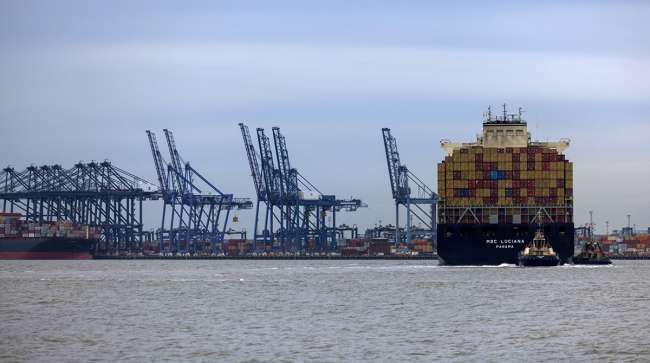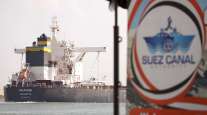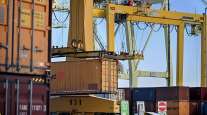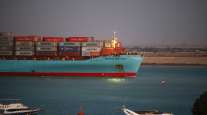Container Shipping Through Red Sea Falls Again

[Stay on top of transportation news: Get TTNews in your inbox.]
HAMBURG, Germany — Container shipping through the Red Sea and Suez Canal has declined again in response to the conflict in the Middle East, after recovering to some extent, a German economic think tank reported March 11.
Around 40 containerships are continuing to use the route — which connects Europe to Asia — every day, down from considerably more than 100 a year ago, the Kiel Institute for the World Economy reported in its Trade Indicator.
After falling to a low in mid-January as a result of attacks mounted by Yemen’s Houthi rebels on commercial vessels in the Red Sea, the number rose to about 50 but has now declined again.
The impact on shipping frequencies in North Sea ports in mainland Europe has eased after rerouting ships around Africa initially caused disruption. The longer passage adds two weeks to the voyage.
Update #KielTradeIndicator: The conflict in the Middle East is changing international trade routes at sea: in February, the 𝗻𝘂𝗺𝗯𝗲𝗿 𝗼𝗳 𝗰𝗼𝗻𝘁𝗮𝗶𝗻𝗲𝗿 𝘀𝗵𝗶𝗽𝘀 𝗽𝗮𝘀𝘀𝗶𝗻𝗴 𝘁𝗵𝗿𝗼𝘂𝗴𝗵 𝘁𝗵𝗲 𝗥𝗲𝗱 𝗦𝗲𝗮 𝗮𝗻𝗱 𝘁𝗵𝗲 𝗦𝘂𝗲𝘇 𝗖𝗮𝗻𝗮𝗹 𝗳𝗲𝗹𝗹 𝗮𝗴𝗮𝗶𝗻,… pic.twitter.com/vTsjFwQyRO — Kiel Institute (IfW Kiel) (@kielinstitute) March 11, 2024
Whereas arrivals declined by around 25% in December and January in ports like Hamburg, Bremerhaven, Rotterdam and Antwerp, this was reduced to a fall-off of some 15% overall. Bremerhaven even recorded an increase by 2%.
Spot rates for a standard container shipped from China to northern Europe are now at $4,500 after reaching a high of $6,000 in January.
Shipping companies are using more ships to mitigate the delays. According to the institute, the number at sea is about 5,450, a rise of 0.3% in February from January.
Yemen’s Iran-backed Houthi rebels started firing at commercial vessels in the Red Sea at the end of last year to force an end to an Israeli military campaign in the Gaza Strip.
Want more news? Listen to today's daily briefing below or go here for more info:
Distributed by Tribune Content Agency, LLC




